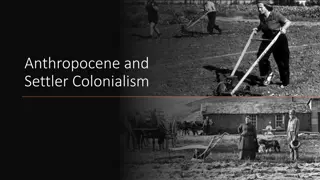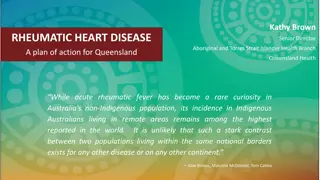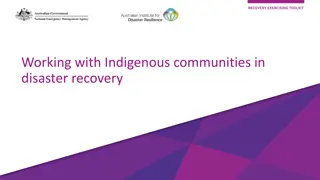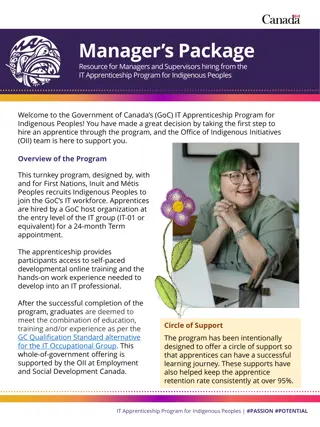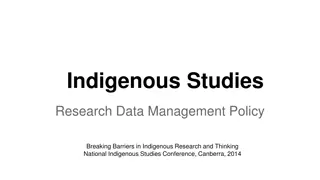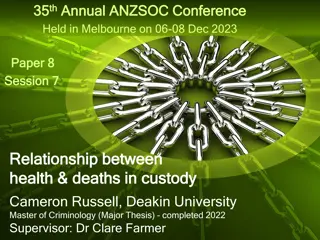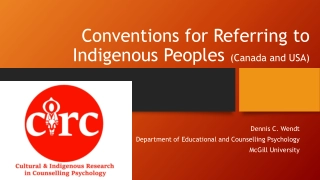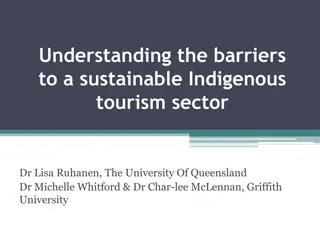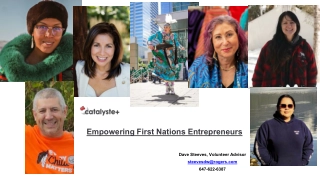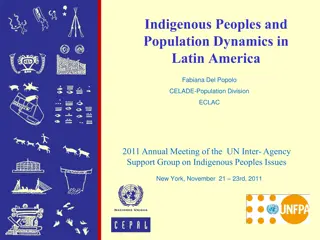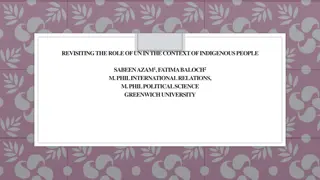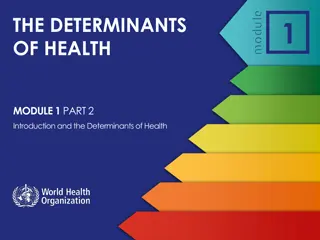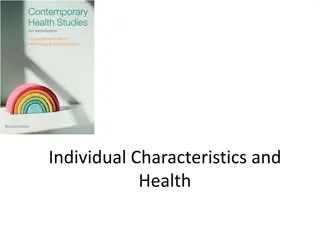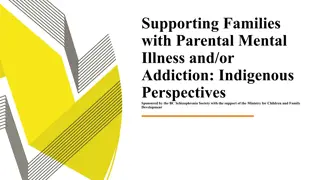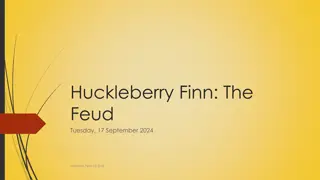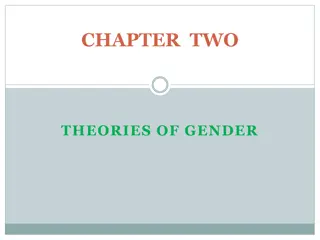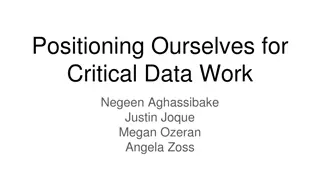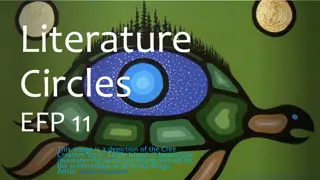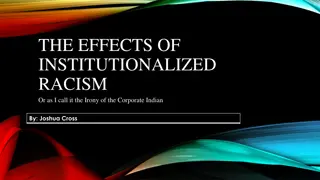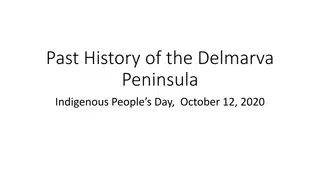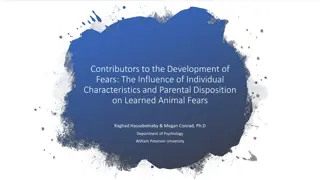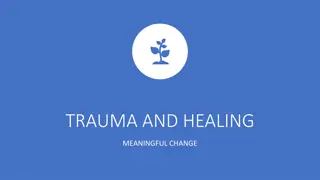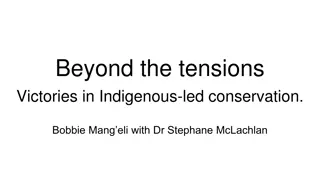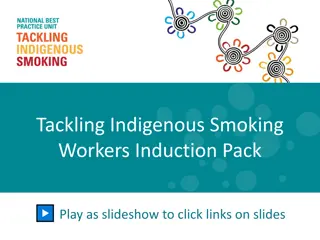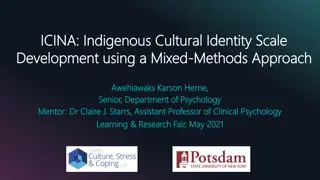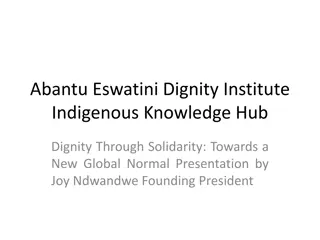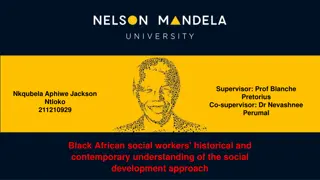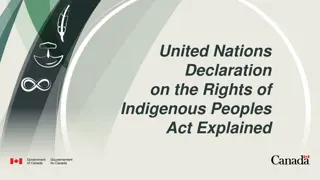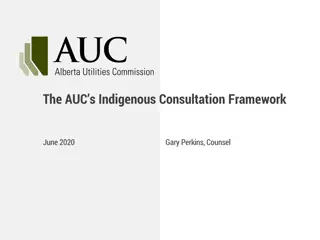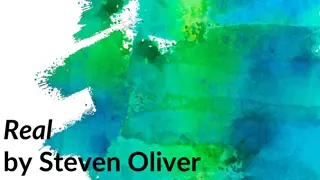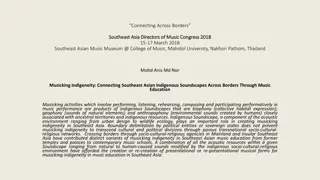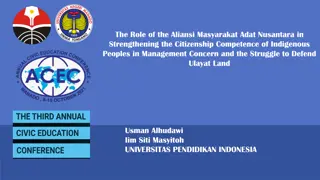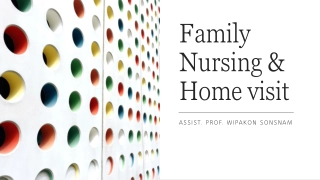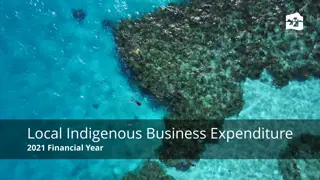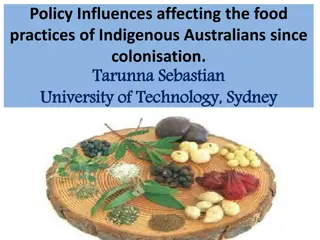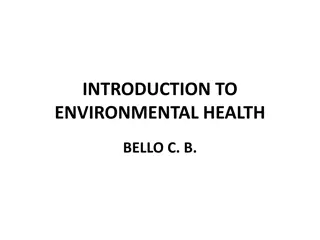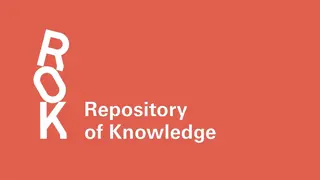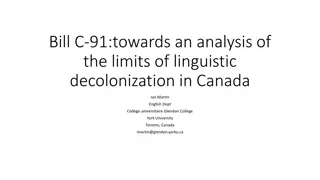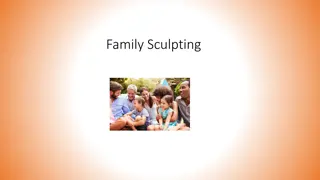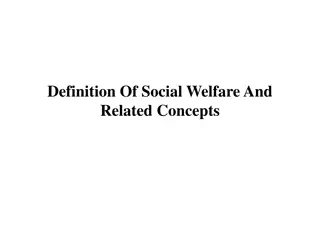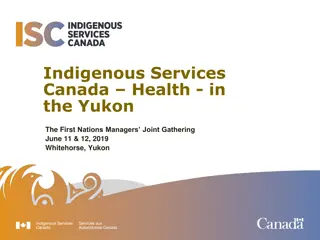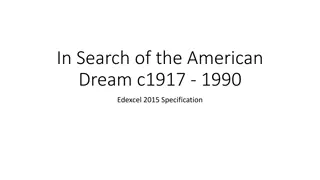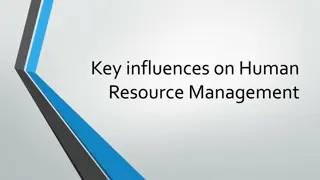Impact of Individual, Family, and Societal Influences on Indigenous Women's Health
Anne-Marie Eades explores the impact of various influences on Indigenous women's health and well-being in her PhD research. Through chapters focusing on chronic diseases, social programs, domestic violence, and more, she delves deep into understanding the roles and responsibilities of Indigenous women and their overall health. Using interpretive phenomenology and face-to-face interviews with 72 Aboriginal and Torres Strait Islander women, the study sheds light on support factors, family dynamics, and informal networks crucial for these women's welfare.
Uploaded on Sep 11, 2024 | 0 Views
Download Presentation

Please find below an Image/Link to download the presentation.
The content on the website is provided AS IS for your information and personal use only. It may not be sold, licensed, or shared on other websites without obtaining consent from the author. Download presentation by click this link. If you encounter any issues during the download, it is possible that the publisher has removed the file from their server.
E N D
Presentation Transcript
Understanding how individual, family and societal influences impact on Indigenous women s health and wellbeing Anne-Marie Eades (PhD) Scientia Fellow Faculty of Medicine University of New South Wales
Structure of my Phd Chapter One - Introduction Chapter Two Indigenous women with chronic disease A review of the literature Chapter Three Systematic Review of programs addressing chronic disease and social and emotional wellbeing for Indigenous peoples of Australia. Chapter Four Reports on the acceptability of a cardiovascular polypill strategy trialled in Indigenous communities within Australia. Chapter Five Roles and Responsibilities of Indigenous women and their impact on there health Findings from a qualitative study. Chapter Six Exploring the determinants of domestic violence in Indigenous communities. Chapter Seven Vicarious Trauma Reflections of an Indigenous researcher. Discussion and Conclusion
Method Research Team Study Design Interpretive Phenomenology Face to Face Interviews Audio-recorded 72 Aboriginal and Torres Strait Islander Women
Participant Selection Clinical Support Staff Member Purposive Sampling Approach Potential Participant Form Participant Form Consent Form Suitable time for Interview
Over-view of the Results Support Factors Concept of Family Stressor Factors Roles and Responsibilities Informal Support Systems Family and Family History Education Intergenerational Circumstances Identity and Country
Results - Support Concept of Family Informal Family Support Networks Education Identity and Connection to Country Nuclear Family Provides social support for visiting Access to Childhood teachings Extended family. education Strengths drawn from Family Unspoken fulfilment of familial Education as returning to country Lives with requirements. an enabler to Healing Siblings Social community caring. succeed Religion Living Alone Active care-giving drawing on empathy. Awareness Financial benefits for family festivities or funeral expenses
Informal Support Networks We all tend to worry together, , no matter what time day or night, I ll always pick up the phone . (011118) I did all of the paperwork so that she d get transferred that took months, I did all the paperwork so her pension would be transferred over, psych report, doctors report, it was pretty stressful . (031918)
Identity and Country Beautiful childhood. Dad taught us how to track, told us stories around the camp fire We were poor, but we didn t go without too much. They were tough times Mum and dad got hungry more than us . (031218) My mother passed away I was actually told at her funeral that I wasn t her biological daughter and that I had not right to be there I just jumped on a bus and went to another town and this is where I stayed . (011018)
Results - Stressors Roles and Responsibilities Family and Family History Intergenerational Circumstances Caring for children Care for ill parents or siblings Caring for extended family which includes aunties, grandparents or children of siblings. Caring for country Working full-time Managing at least one household. Living in two worlds Older women or grandmother roles Financial Burden Grief and Loss Alcohol Abuse Death and Dying Stolen Generation Impacts Separation. Unsafe environments Death in Custody Transient Lifestyle Homelessness Incarceration Domestic Violence Childhood Negative Events Unsafe Environments Cycle of Abuse
Roles and Responsibilities Because I ve been babysitting my granddaughter all this time, I ask my daughter can you give me a break so I can concentrate on me taking my medicines for my diabetes. Being responsible for her, I cant be responsible for myself. I find it hard . (011118) I know that I need better surroundings. But, , the Aboriginality in me tells me that it s our culture to share and care. your not taught to look after yourself; your taught to look after others . (031118)
Family and Family History Grief & Loss - There was 18 months, we had all this grief, I couldn t cope, I got really depressed with all the deaths. Its not only the families, it s the community that s constantly grieving . (011918) Death & Dying - My father died, he had a heart attack and my mother passed away, she had cancer in her lungs. My sister passed away, my brother passed away in a car accident. I got not family left. I m just myself and my daughter, my cousin and my aunty . (041118)
Intergenerational Circumstances Incarceration my second eldest son is pretty stressed out I don t get to see him or hear his voice which his pretty upsetting. He is doing 10 years His father is always in and out of jail . (011918) Family Violence I am living in a household with an ex-husband, He kicked me and then pushed me, I am still getting over that now. You can t kick a 57 year old woman across the room and not cause any damage . (031218)
Recommendations Grief Counselling Programs Workplaces to embed culturally safe processes in place to recognise the cultural, family and community responsibilities that women have. Culturally Safe Shelters for women and their families experiencing family violence. Evaluation of Family Violence Programs Programs to support young women to be stronger women and better parents. Programs for men to address their issues in a culturally safe space. Diversionary Programs
Acknowledgement 72 women who shared their amazing journey of caring for their families, community and country. Your strength, resilience & will to hold your families together was amazing however, many of you forgot to care for you at times. Wuchopperen Aboriginal Medical Service, Central Australian Aboriginal Health Congress, Geraldton Regional Aboriginal Medical Service and Wirraka Maya Health Service for your generosity and patience you showed me.


